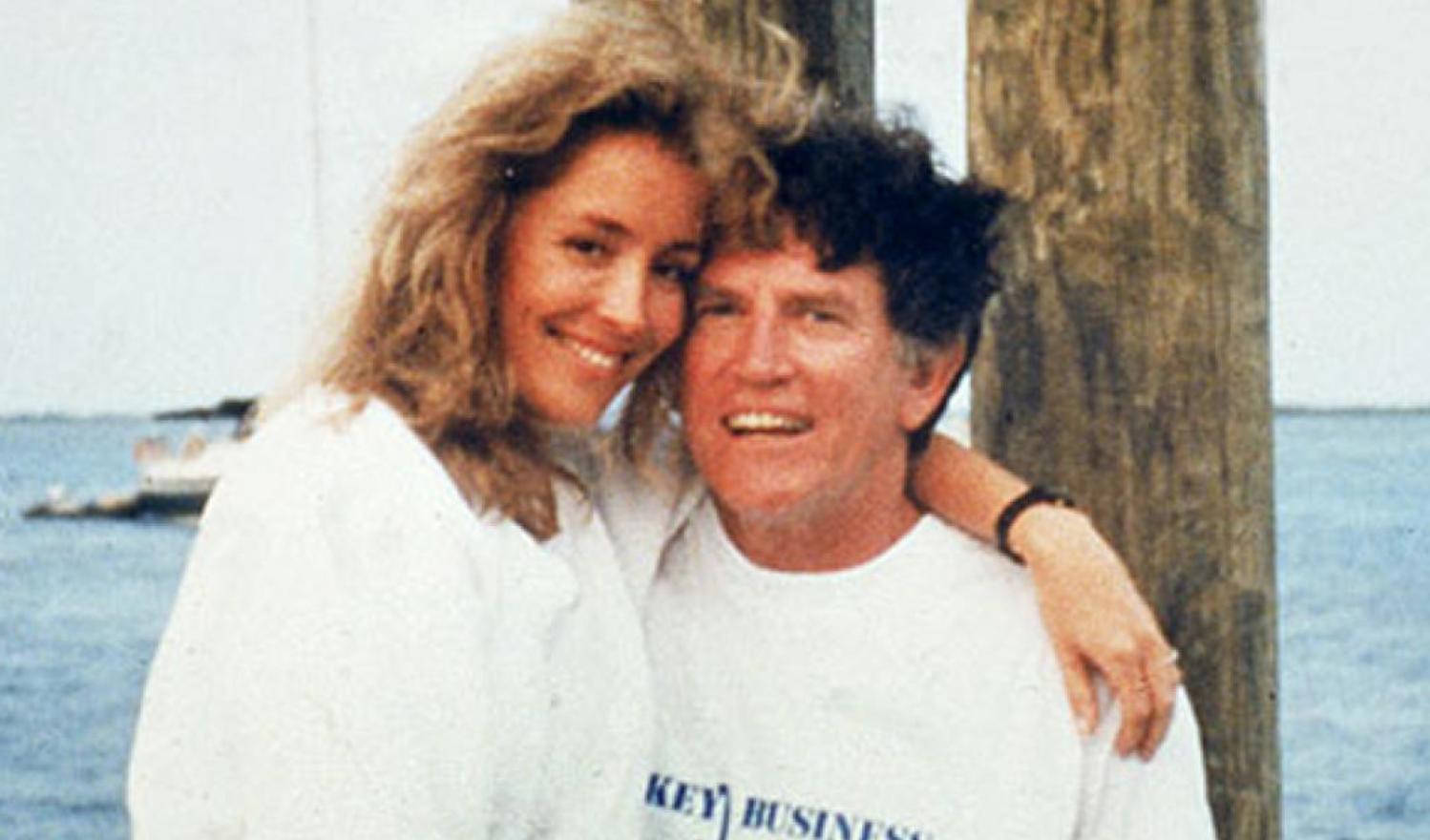A new Atlantic piece by James Fallows passes along a first-hand conspiracy story from Democratic strategist James Strother. The gist is that the late Republican torpedo specialist Lee Atwater (the guy behind the Willie Horton ad) confessed to Strother on his death bed in ’91 that he “set up” 1988 Democratic presidential candidate Gary Hart. The cancer-stricken Atwater, 39 years old, allegedly told Strother that “I did it!…I fixed Hart.” The whole Monkey Business episode with Donna Rice, Atwater meant, and that damning photo of Rice sitting on Hart’s lap. All of it a political trap.
Atwater somehow took advantage of and/or worked with Billy Broadhurst, the “political groupie and aspiring insider” who had taken Hart on the fateful Monkey Business cruise. Rice and another woman were invited to join the cruise, and the photo of Rice on Hart’s lap was planned and of course used after Hart suspended in his 1988 campaign. Fallows writes that there’s no proof of this other than Strother’s account.
As much as I admire Jason Reitman‘s The Front Runner, which is all about how Hart’s campaign was destroyed by allegations about a possible Rice affair, it would have been that much stronger a film if the Strother-Atwater story had been woven into the plot. Right now the movie has two hand-of-doom elements — Hart’s cavalier self-destructiveness in not hiding his indiscretions more covertly or skillfully, and the Miami Herald reporters who were tipped off about Hart’s affair with Rice. If the Strother-Atwater story has been used, it would have trumped both of these elements.
Did Hart have certain extra-marital tendencies before the Rice scandal? According to legend, yes. Would he have gotten into trouble with some other lust object if the Rice thing hadn’t happened? Possibly. But the Atwater confession certainly adds spice to the brew.
Strother and Atwater had the mutually respectful camaraderie of highly skilled rivals. “Lee and I were friends,” Strother told me when I spoke with him by phone recently. “We’d meet after campaigns and have coffee, talk about why I did what I did and why he did what he did.” One of the campaigns they met to discuss afterward was that 1988 presidential race, which Atwater (with Bush) had of course ended up winning, and from which Hart had dropped out. But later, during what Atwater realized would be the final weeks of his life, Atwater phoned Strother to discuss one more detail of that campaign.
Atwater had the strength to talk for only five minutes. “It wasn’t a ‘conversation,’ ” Strother said when I spoke with him recently. “There weren’t any pleasantries. It was like he was working down a checklist, and he had something he had to tell me before he died.”
What he wanted to say, according to Strother, was that the episode that had triggered Hart’s withdrawal from the race, which became known as the Monkey Business affair, had been not bad luck but a trap. The sequence of events was confusing at the time and is widely misremembered now. But in brief:
In late March 1987, Hart spent a weekend on a Miami-based yacht called Monkey Business. Two young women joined the boat when it sailed to Bimini. While the boat was docked there, one of the women took a picture of Hart sitting on the pier, with the other, Donna Rice, in his lap. A month after this trip, in early May, the man who had originally invited Hart onto the boat brought the same two women to Washington. The Miami Herald had received a tip about the upcoming visit and was staking out the front of Hart’s house. (A famous profile of Hart by E. J. Dionne in The New York Times Magazine, in which Hart invited the press to “follow me around,” came out after this stakeout—not before, contrary to common belief.) A Herald reporter saw Rice and Hart going into the house through the front door and, not realizing that there was a back door, assumed — when he didn’t see her again — that she had spent the night.
Amid the resulting flap about Hart’s “character” and honesty, he quickly suspended his campaign (within a week), which effectively ended it. Several weeks later came the part of the episode now best remembered: the photo of Hart and Rice together in Bimini, on the cover of the National Enquirer.
What are we to make of Strother’s late-in-life revelation of Atwater’s deathbed confession? Hart’s reputation, deserved or not, certainly gave Atwater something to work with, if that’s what he did. (“It would be just like the perversity of history for someone to undertake an effort that might well have happened by itself,” Matt Bai told me when I spoke with him recently.)
What would have induced Broadhurst to participate in an entrapment scheme? (When I asked Strother this question, he said, “Money.”) How exactly was the scheme supposed to work? Hart had been introduced to Donna Rice at least once before (briefly, at an event at the musician Don Henley’s house, in Colorado, that Hart attended with his wife), and he phoned her after the Monkey Business weekend. Both Rice and Hart denied any affair. A few people still living may know what happened that weekend, and why. (Rice, who now leads an internet-safety group called Enough Is Enough and goes by her married name, Donna Rice Hughes, did not respond to repeated requests for comment.) Most likely the rest of us never will.

